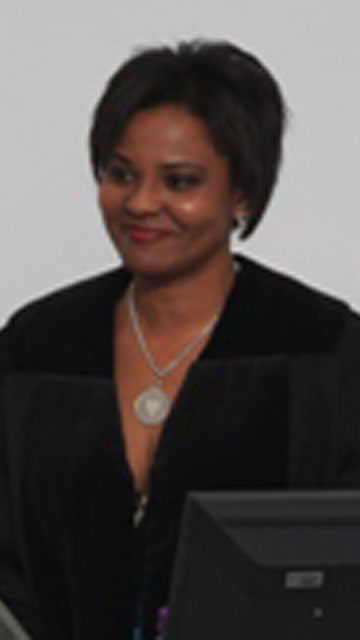
Considering the ways in which identity is reconstructed in places where oppression still lingers is a lifetime pursuit for Professor Rose Boswell, former Deputy Dean of Humanities and Head of Anthropology at Rhodes University.
During her inaugural lecture entitled ‘Re-imagining Ourselves: Odyssey and Anthropology in the southwest Indian Ocean Islands’, Prof Boswell shared her experiences of researching identity in the Southwest Indian Ocean islands of Mauritius, Zanzibar, Madagascar and Seychelles.
Prof Boswell’s lecture discussed the politics of identity and the influence of contemporary social phenomena on the islands, specifically international tourism and heritage management.
Providing a brief overview of anthropological theory to contextualise her research, Prof Boswell noted the shifts in conceptions of research and the role of the anthropological researcher in recent decades.
“Anthropologists, increasingly diverse and politically aware, have critically engaged with these issues, seeking to transform theorisation and practice while critically reflecting on and engaging a wide range of people on the issue of enduring inequality,” said Prof Boswell.
A brief overview of anthropological research topics worldwide shows that anthropologists today are doing vital work, according to Prof Boswell, such as researching and writing on politically significant issues like expatriate communities, sexual paradigms, ethical consumption, the politics of genetic testing and the discourses of corporate social responsibility.
“These new anthropologists, deeply conscious of the ‘sins’ of their forefathers are navigating various, ideologically complex terrains. They remain keenly aware of the politics of research and are standing up to self-reflexively when encountering communities,” she said.
While new directions in anthropology make it difficult to establish the external contours of the discipline, Prof Boswell argued that it is possible to discern the internal landscape via analyses of complex spaces such as the southwest Indian Ocean world.
In her view, “the island societies of the southwest Indian Ocean are globally and politically inscribed and these inscriptions are encouraging re-imagined selves, which, although tenuously anchored across multiple spaces of influence, empower the islanders in specific ways.”
The emerging complexity apparent in this region and global society as a whole is altering the internal landscape of the discipline and re-inscribing anthropologists, Prof Boswell explained, resulting in more politically and socially nuanced accounts of the social world.
“It is not only scholarship which makes an anthropologist and her concerns, but also the social relationships and self-reflexivity which arises out of fieldwork. This process is political for it re-orients the researcher enabling her to question the underlying assumptions of theory and research practice.”
Prof Boswell shared findings on how “the islanders are keen to re-imagine self and community so as to produce alternative identities, networks and sources of power in a still oppressive context, and that this process is vital to care, solidarity and the pursuit of social justice.”
Doing research in Mauritius, Madagascar, Seychelles and Zanzibar also revealed that anthropology is perplexing and rewarding, said Prof Boswell, since it involves difficult “ learning with others and seeing power where the apparently powerless reside”.
She concluded that being in the Indian Ocean region positively changed the way she perceives and experiences fieldwork, and that her findings thus far underscore the relevance of anthropology to contemporary Africans and their ‘cousins’ in the African Diaspora.
By Sarah-Jane Bradfield
Photo by Stephen Penney
